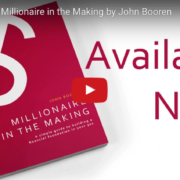Improving Investor Behavior – Fear of Missing Out
When you are stuck in traffic on the interstate, creeping along, do you find yourself wanting to switch from one lane to another? Do you glance to the left and see the “fast lane,” and are envious of how quickly they are moving? You look for an opening, signal and move over to gain some speed… only to come to a stop. You then notice the car you were following in the lane to the right moves along past you. A few minutes later, it has moved way ahead, out of sight.
This is an illustration to which investors can relate. Making a move from one strategy to another – one that looks more attractive because it is moving along faster than you are – often has the same frustrating result. As with driving, you may take the risk and make a financial strategy change to feel like you are getting ahead, only to find yourself coming to a stop since you made that investment at the wrong time, or for the wrong reason. This is FOMO or the Fear of Missing Out.
Buying an investment in today’s world is rather easy. From apps on your phone to Mutual Fund stores in strip malls, purchasing investments has never been simpler. What previously involved a call to your broker to make an investment purchase is now even easier with these multiple alternatives. Investment companies, however, thrive on investors making changes whether it comes from transaction commissions or asset management fees.
Some financial companies encourage lane-changing behavior, where investors hop from one product or strategy to another, in an attempt to “beat the market.” Frankly, beating the market is a lot of work (and luck). You must buy something before the value rises, sell it high, and reinvest those dollars in the next low-value stock that goes up in price. One’s ability to do this consistently is practically non-existent. Yet people believe they can, spurred on by a variety of messaging we receive. The bottom line is that investing takes discipline.
We also know that FOMO has a close cousin: Comparison. Comparing is said to be human nature. We tend to examine what we have, make, how we look, and where we live to others. The funny thing about this habit is that there is never a winner. That is because there will always be someone, somewhere with more than what you have, look better than you do, have a bigger house, etc. The habit of comparison envelops people and can significantly harm their investment behavior. It plants the seed for FOMO and leads to comparing how fast you are going versus the person in the other lane.
I encourage my clients to measure progress. Are you on plan or target? If so, great! If not, what adjustments do you need to make to get back in your lane and make progress toward your destination? Measuring how far you’ve come is a much healthier measure than judging against perfection. Comparing yourself to someone else, or to an ideal, only generates negative feelings and emotions. Measure progress, not perfection.
At the end of the day, the only reason people invest and save is for income – either income today or income tomorrow. Attempting to grow your money pile bigger and bigger may sound appealing, but capital gains are an unreliable source of income. Trying to trade your way up the pile is a lot of work and a goal for which few have the skill and discipline to achieve. Most financial advisors coach people to build up a financial “retirement pile” then spend down or make distributions based on a “safe” distribution rate. Growth is an unreliable source of income, and that strategy can lead to unfortunate timing decisions.
On the contrary, stay focused on a strategy with a history of success. Ignore the whispering emotions of fear or greed, and you can reach your destination with a lot less “lane-changing risk.” We believe in investing in great companies with a broad business moat. They sell their goods or services to everyone, everywhere, every day, and share a portion of the profits with their owner-shareholders in the form of a dividend. Dividends may not be the only path for investor success, but if there is a better one, I have yet to find it.
Decide your destination and map out a course. Be very careful making those lane changes.
Steve Booren is the Owner and Founder of Prosperion Financial Advisors, located in Greenwood Village, Colo. He is the author of Blind Spots: The Mental Mistakes Investors Make and Intelligent Investing: Your Guide to a Growing Retirement Income and a regular columnist in The Denver Post. He was recently named a Barron’s Top Financial Advisor and recognized as a Forbes Top Wealth Advisor in Colorado.









